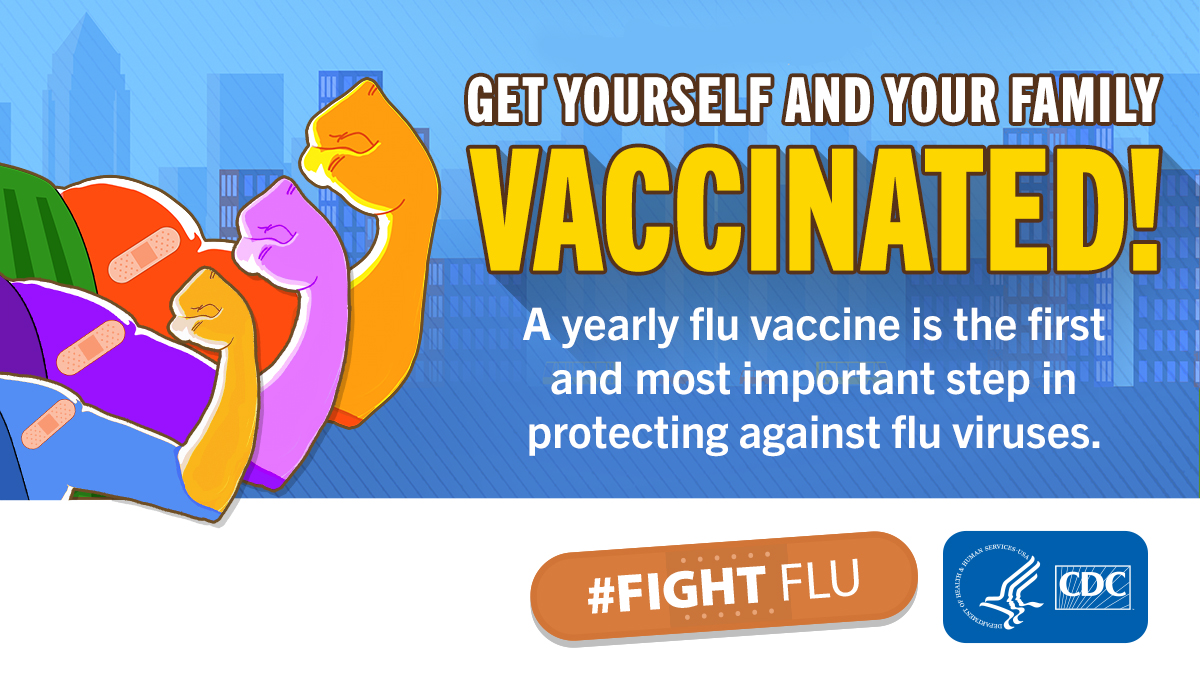October 2020 - A Strong Defense Against Flu: Get Vaccinated!

While getting a flu vaccine will not protect against COVID-19 there are many important benefits, such as:
- Flu vaccines have been shown to reduce the risk of flu illness, hospitalization, and death.
- Getting a flu vaccine can also save healthcare resources for the care of patients with COVID-19.
- The best way to protect yourself and your loved ones against influenza (flu) is to get a flu vaccine every flu season. Flu is a contagious respiratory disease that can lead to serious illness, hospitalization, or even death. CDC recommends everyone six months and older get an annual flu vaccine.
- Every year, flu vaccination prevents illnesses, medical visits, hospitalizations, and deaths.
- Flu vaccination also is an important preventive tool for people with chronic health conditions. For example, flu vaccination has been associated with lower rates of some cardiac events among in people with heart disease.
- Vaccinating pregnant women helps protect them from flu illness and hospitalization, and also has been shown to help protect the baby from flu infection for several months after birth, before the baby can be vaccinated.
- A 2017 study showed that flu vaccine can be lifesaving in children.
- While some people who get vaccinated still get sick, flu vaccination has been shown in several studies to reduce severity of illness.
- Flu viruses are constantly changing, so flu vaccines may be updated from one season to the next to protect against the viruses that research suggests will be common during the upcoming flu season.
- Your protection from a flu vaccine declines over time.
- Yearly vaccination is needed for the best protection.
Is the flu vaccine safe?
Flu vaccines have a good safety record. Hundreds of millions of Americans have safely received flu vaccines over the past 50 years.
Extensive research supports the safety of seasonal flu vaccines.
Flu shots: Flu shots are made using killed flu viruses or without flu virus at all. So, you cannot get flu from a flu shot. Some minor side effects that may occur include soreness, redness and/or swelling where the shot was given, low grade fever, and aches.
If these problems occur, they are usually mild and go away on their own, but serious reactions are also possible. Almost all people who receive flu vaccine have no serious problems from it.
When and Where to get vaccinated?
You should get a flu vaccine by the end of October. However, as long as flu viruses are circulating, vaccination should continue throughout flu season, even in January or later.


